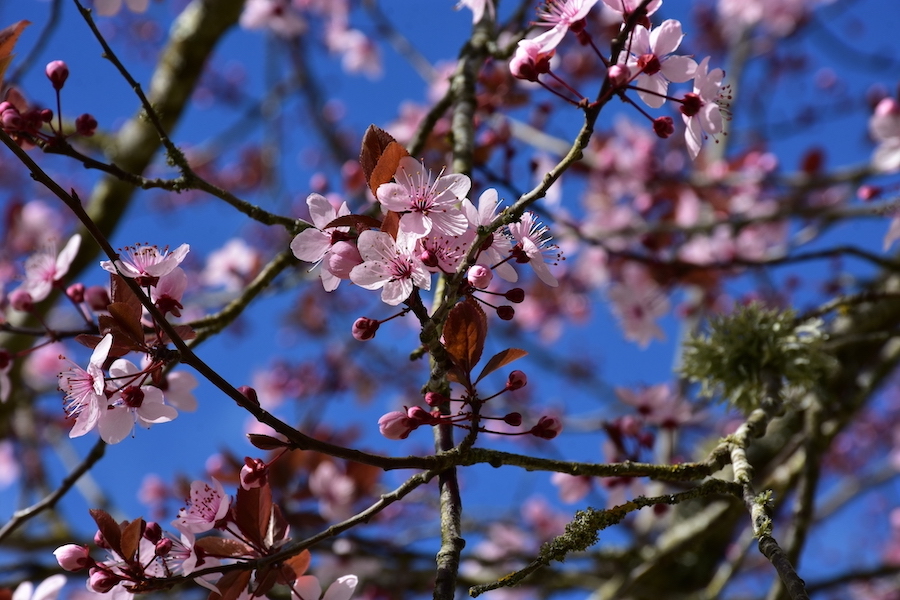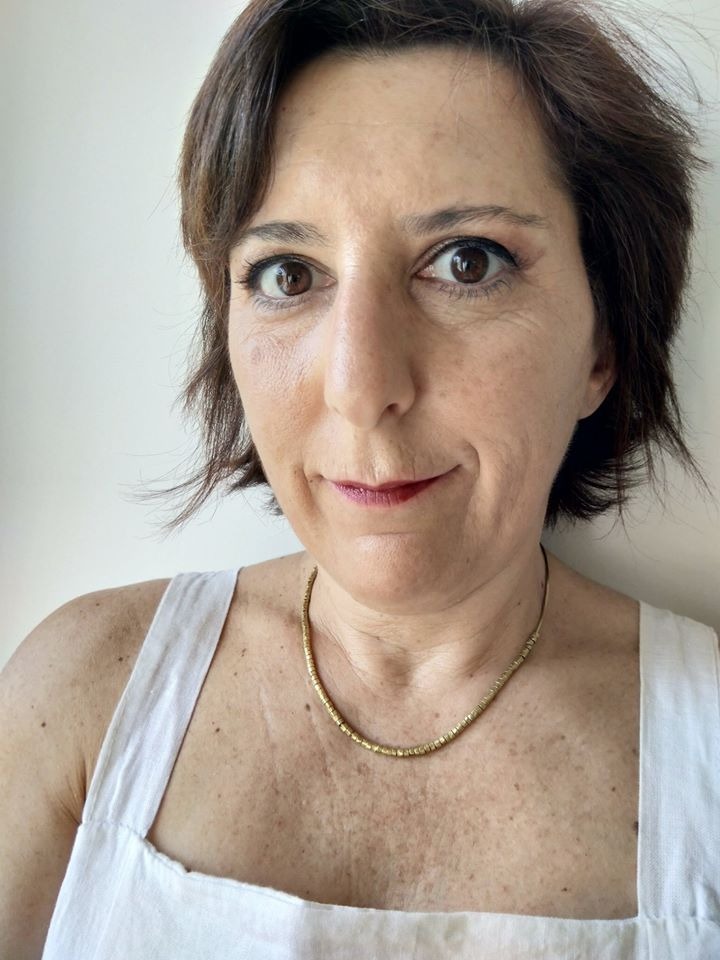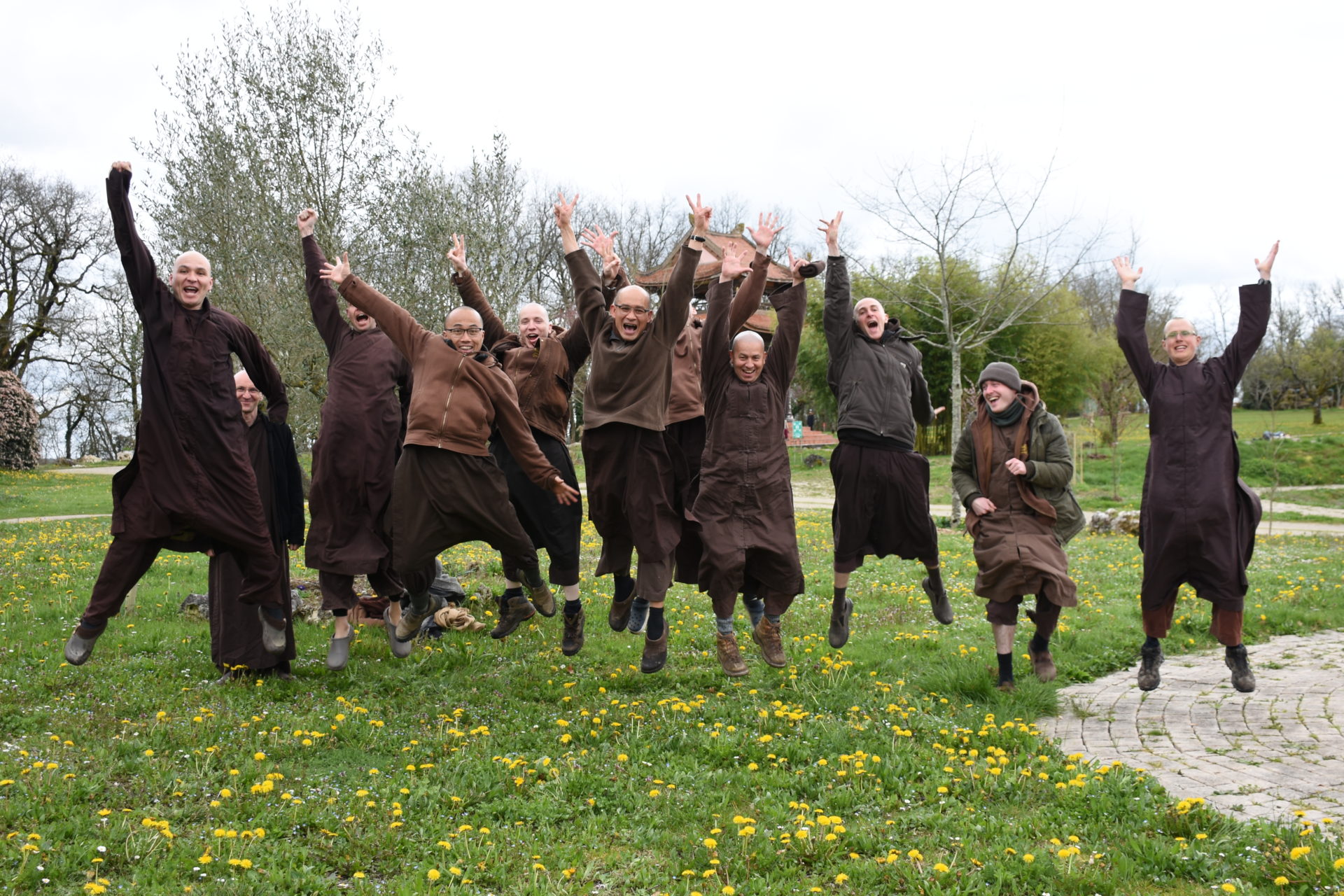As Observed by a Tree
Through Yvette Nahmia-Messinas

I am a tree, a palm tree. I live in Jerusalem’s Garden of Roses. I have known Yvette for many years. Recently, the Jerusalem Sangha Yvette practices with started meeting here, and she asked my permission to write on the First Mindfulness Training, “Reverence for Life,” in my name. I agreed.
As Observed by a Tree
Through Yvette Nahmia-Messinas

I am a tree, a palm tree. I live in Jerusalem’s Garden of Roses. I have known Yvette for many years. Recently, the Jerusalem Sangha Yvette practices with started meeting here, and she asked my permission to write on the First Mindfulness Training, “Reverence for Life,” in my name. I agreed.
Let me first introduce my home to you, the Garden of Roses. It is located in Jerusalem’s Talbiya neighborhood, one of the oldest neighborhoods in the city. Its southern entrance is on Dubnov Street, and its northern entrance is on Pinsker Street. The garden is built on three levels in a hilly landscape. Its core is a green lawn surrounded by palm trees, olive trees, cypress trees, and bushes. Upon entering from the south, you are immersed in lavender and rosemary scents and colors, and greeted by beautiful red and pink roses. In the north, you encounter a crocodile made out of recycled materials, and there are benches welcoming visitors to sit, read, listen to music, and talk. A small playground with a sandbox is thrilled to host two-year-olds who visit the park daily to play, escorted by a parent or grandparent.
What is special about the garden is that it is designed to be accessible to all humans of all ages—accessible to mothers with strollers, people in wheelchairs, and young ones on scooters, skates, and bicycles. Embracing of all, inclusive of all, and nurturing to all is my home, the Garden of Roses.
Recently, the park has witnessed a steep rise in visitors. Nowadays, people don’t come by themselves or with their dogs but in groups. We have welcomed many groups of cyclists, gymnasts with their coach, wrestling and yoga groups, and qigong and meditation groups. The garden has become a place to socialize, exercise, celebrate, meditate, work, and play, but also simply be.
Yvette’s mindfulness group met here at the park once a week before the rainy season started. In summer you sat in a circle on the lawn, but in early winter, you enjoyed standing and walking meditation. At the beginning of your gatherings, you invited a bell to gather everyone’s attention, and then walked in conscious steps coordinated with your breath, winding around the garden starting from its lowest to its highest point.
We are aware of you taking note of our input and of how we—trees, flowers, and bushes—contribute to your feelings of wellness. You become mindful of the earth you walk on, the sky that is above you, and the trees that shelter you under our shade and uplift you with our upright beauty.
On your group’s last visit to the park before the rain drew you back indoors, it was dark. The sun had set; it was a starry night, cold, and humid. As you walked slowly and steadily, you stepped on snails, dozens of them. I heard the sound of snails being crushed, their shells cracking. Bit by bit, though, step by step, you became more mindful. You noticed the living creatures under your feet. The more mindful you became, the more you succeeded in safeguarding the snails. We were relieved.
Now that the bustling of your city lives has diminished, I sense that humans are discovering me, us, the park, and you appreciate what you are given freely here—given without judgement, without expectation, with acceptance of life as it is and as it unfolds in each moment. With openness for what is, with beingness being what matters. As you slow down, we witness you not only becoming more present for each other but also more present to us and acknowledging us more.
Dear ones, I love it when you come close and get close. I love it when you come for a hug, play around my trunk, hide behind me, or sing in my presence. I also enjoy the giggling laughter of children playing hide and seek around me, and mothers resting their backs on me to breastfeed their young ones or read them a story. I freely give shade, grounding, support, and inspiration without expecting anything in return. It is in my nature to give; it is in my nature to nurture, and I enjoy it.
I am fully grounded in my body, rooted in this earth, embodied on this ground, and present—always transforming and changing from winter to summer, adjusting and growing with what is. I flow with what is, whether sun, rain, snow, hail, or wind. I don’t nurture bad feelings for snow or hail. In fact, I like the shower of pellets of frozen rain; I love the white, serene look the snow provides.
Each of the elements brings something new to my existence, a freshness in me. I don’t resist it, but rather I dance with it, play with it, and sing with it. I am open to experience each minute, hour, and day, when the sun rises and sets, when the sky is starry and when there is a full moon, and when there is rain, wind, or sun. I am open to all without judgement and with a sense of rootedness. No matter what it is like outside, life is safe and nurturing from within. I am in my skin, pulse in my inner breath, inner rhythm, and inner root.
I see you humans as trees in movement—trees that interact through human language in words, sounds, and movement. Could it be that beyond our differences in shape and form, we both yearn for the same things? We yearn for nurturance, growth and development, communication and community, and offering our fruits for others to enjoy?
In Israel people celebrate Tu B’Shvat, the holiday of trees. On that day, human adults and children go into nature and plant us. They eat from our fruit and give gratitude to earth for its abundant giving. Humans connect to us.
I am open to this connection with you every day and invite you to come by, and visit me on your way to work and upon returning home anytime. My fellow trees and I will be happy to see you.

Yvette Nahmia-Messinas has practiced with the Jerusalem Sangha since 2020. Yvette is a poet, Reiki master, and blogger at www.fromjerusalemwithlove.com. Yvette works at the Interfaith Center for Sustainable Development to promote cooperation among people and communities to safeguard our shared home.

